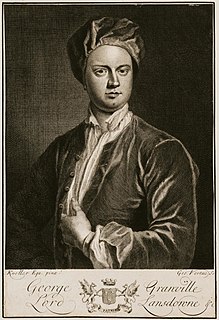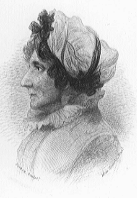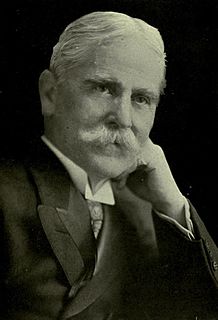A Quote by William Shakespeare
Related Quotes
Late have I loved Thee, O Lord; and behold, Thou wast within and I without, and there I sought Thee. Thou was with me when I was not with Thee. Thou didst call, and cry, and burst my deafness. Thou didst gleam, and glow, and dispell my blindness. Thou didst touch me, and I burned for Thy peace. For Thyself Thou hast made us, and restless our hearts until in Thee they find their ease. Late have I loved Thee, Thou Beauty ever old and ever new. Thou hast burst my bonds asunder; unto Thee will I offer up an offering of praise.
Eternity.?Thy name Or glad, or fearful, we pronounce, as thoughts Wandering in darkness shape thee. Thou strange being, Which art and must be, yet which contradict'st All sense, all reasoning,?thou, who never wast Less than thyself, and who still art thyself Entire, though the deep draught which Time has taken Equals thy present store?No line can reach To thy unfathomed depths. The reasoning sage Who can dissect a sunbeam, count the stars, And measure distant worlds, is here a child, And, humbled, drops his calculating pen.
If thy desire to raise thy fortunes encourage thy delights to the casts of fortune, be wise betimes, lest thou repent too late; what thou gettest, thou gainest by abused providence; what thou losest, thou losest by abused patience; what thou winnest is prodigally spent; what thou losest is prodigally lost; it is an evil trade that prodigally drives; and a bad voyage where the pilot is blind.
The worldly wisdom of the foolish man Is like a sieve, that does alone retain The grosser substance of the worthless bran: But thou, my soul, let thy brave thoughts disdain So coarse a purchase: O be thou a fan To purge the chaff, and keep the winnow'd grain: Make clean thy thoughts, and dress thy mixt desires: Thou art Heav'n's tasker, and thy God requires The purest of thy flow'r, as well as of thy fires.
Deliberate long before thou consecrate a friend, and when thy impartial justice concludes him worthy of thy bosom, receive him joyfully, and entertain him wisely; impart thy secrets boldly, and mingle thy thoughts with his: he is thy very self; and use him so; if thou firmly think him faithful, thou makest him so.
Wouldst thou know the lawfulness of the action which thou desirest to undertake, let thy devotion recommend it to Divine blessing: if it be lawful, thou shalt perceive thy heart encouraged by thy prayer; if unlawful, thou shalt find thy prayer discouraged by thy heart. That action is not warrantable which either blushes to beg a blessing, or, having succeeded, dares not present a thanksgiving.
Thou wayfaring Jesus - a pilgrim and stranger, Exiled from heaven by love at Thy birth: Exiled again from Thy rest in the manger, A fugitive child 'mid the perils of earth - Cheer with Thy fellowship all who are weary, Wandering far from the land that they love: Guide every heart that is homeless and dreary, Safe to its home in Thy presence above.

































